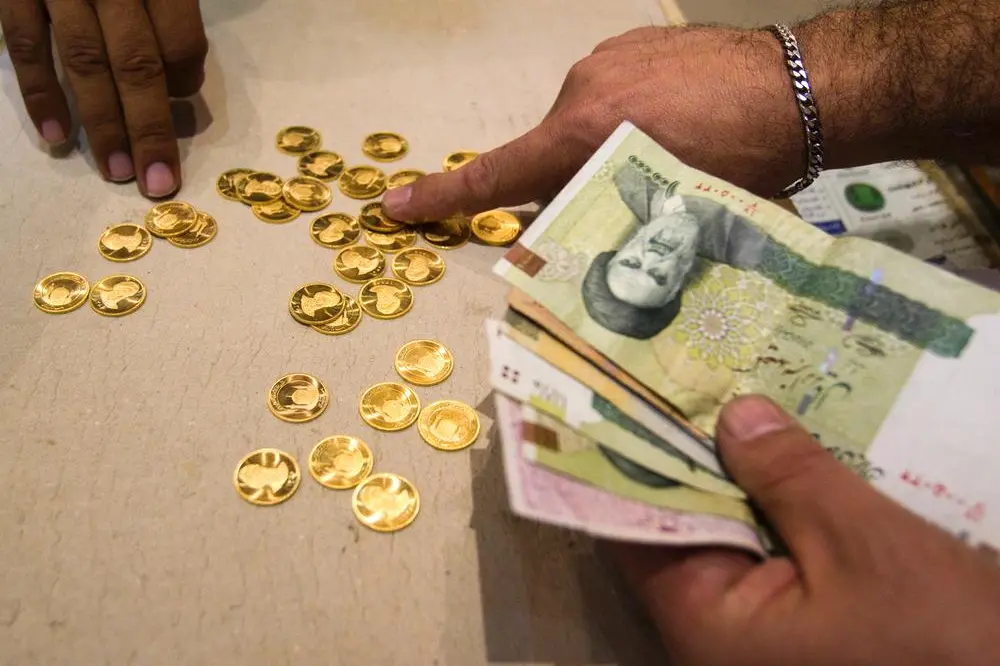PHOTO
LONDON, March 30 (Reuters) - Iranian sovereign fund IFIC is targeting investments in the healthcare and high-tech sectors in the hope of improving the lives of Iranians, Vahid Sharif, an investment manager at the fund, said on Thursday.
The Iran Foreign Investment Company, set up in 1997 as a holding company to manage the state's assets and investments overseas, has around $5 billion under management, Sharif said. Revenues come from company dividends, and its mandate is to reinvest these in new opportunities abroad.
It is currently invested in 22 companies including banks, financial and credit institutions, mining and other industries.
Speaking to Reuters on the sidelines of the Global Sovereign Wealth Forum in London, Sharif said IFIC was focusing on opportunities in the healthcare industry -- such as pharmaceuticals to tackle cancer and Alzheimer's -- and innovative high-tech industries.
"We are ready to co-invest in the high-tech industry," he said, citing potential opportunities in the car industry around navigation, reducing accidents and cutting air pollution.
"How can we make Iranian roads safer Can we develop electric cars to reduce pollution" he said. "Also, Iran is number one in energy waste -- is there a way to reduce this"
Investments could be made by taking minority stakes in companies or through joint ventures. "We want to transfer knowledge to Iranians," Sharif said.
Europe is a major focus for the fund, which is also working on a way to provide trade finance for Iranian and European companies wanting to do business with each other.
The European Union has lifted nuclear-related economic and financial sanctions on Iran though the United States voted earlier this year to extend sanctions, the latest of several such post nuclear-deal moves that have deterred western banks from financing trade or investment in Iran.
Sharif did not comment on the impact of sanctions on the fund's activities.
"We are also exploring South Korea and Japan," he said. "These countries have a good relationship in oil with Iranians, it means there is no concern over liquidity.
(Reporting by Claire Milhench) ((claire.milhench@thomsonreuters.com; +44)(0)(207 542 3571; Reuters Messaging: claire.milhench.thomsonreuters.com@reuters.net))
The Iran Foreign Investment Company, set up in 1997 as a holding company to manage the state's assets and investments overseas, has around $5 billion under management, Sharif said. Revenues come from company dividends, and its mandate is to reinvest these in new opportunities abroad.
It is currently invested in 22 companies including banks, financial and credit institutions, mining and other industries.
Speaking to Reuters on the sidelines of the Global Sovereign Wealth Forum in London, Sharif said IFIC was focusing on opportunities in the healthcare industry -- such as pharmaceuticals to tackle cancer and Alzheimer's -- and innovative high-tech industries.
"We are ready to co-invest in the high-tech industry," he said, citing potential opportunities in the car industry around navigation, reducing accidents and cutting air pollution.
"How can we make Iranian roads safer Can we develop electric cars to reduce pollution" he said. "Also, Iran is number one in energy waste -- is there a way to reduce this"
Investments could be made by taking minority stakes in companies or through joint ventures. "We want to transfer knowledge to Iranians," Sharif said.
Europe is a major focus for the fund, which is also working on a way to provide trade finance for Iranian and European companies wanting to do business with each other.
The European Union has lifted nuclear-related economic and financial sanctions on Iran though the United States voted earlier this year to extend sanctions, the latest of several such post nuclear-deal moves that have deterred western banks from financing trade or investment in Iran.
Sharif did not comment on the impact of sanctions on the fund's activities.
"We are also exploring South Korea and Japan," he said. "These countries have a good relationship in oil with Iranians, it means there is no concern over liquidity.
(Reporting by Claire Milhench) ((claire.milhench@thomsonreuters.com; +44)(0)(207 542 3571; Reuters Messaging: claire.milhench.thomsonreuters.com@reuters.net))





















